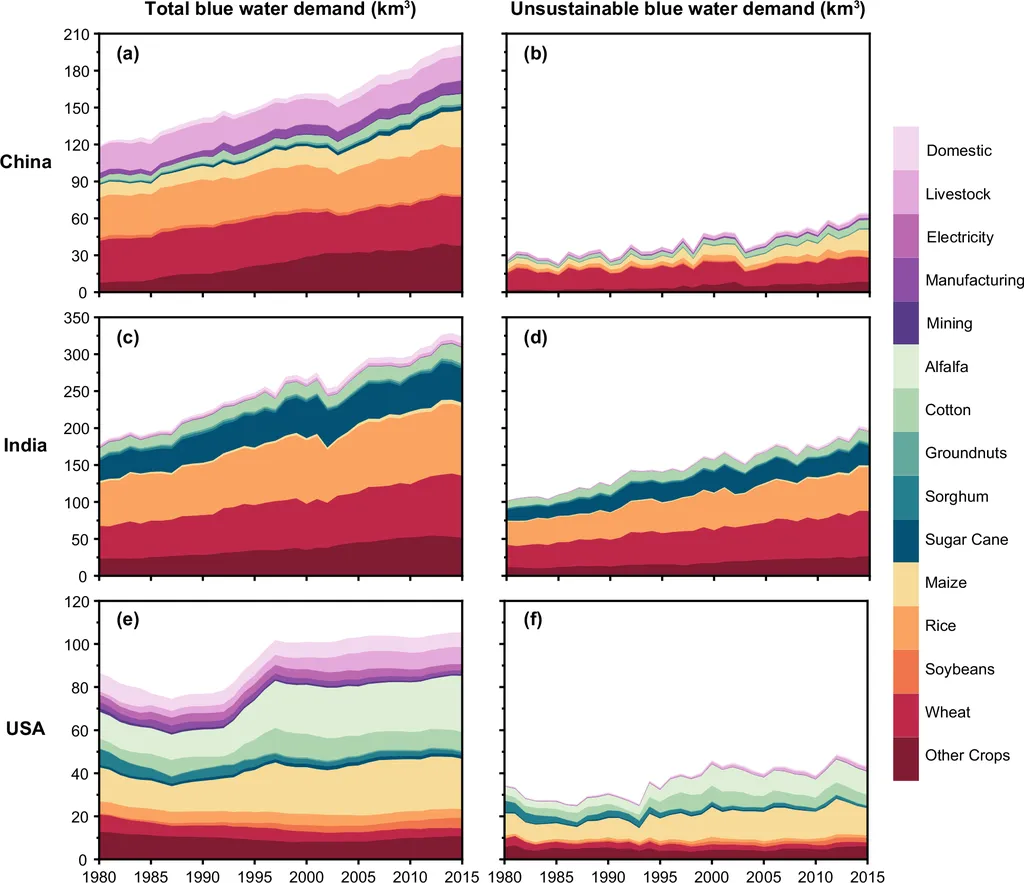In the heart of India’s breadbasket, Western Uttar Pradesh, a silent revolution is underway, one that’s reshaping the way farmers think about water, energy, and food. A recent study published in the *Journal of Agricultural Extension* and led by Surabhi Singh, a Ph.D. Scholar at the Indian Institute of Technology Jodhpur, sheds light on the changing cropping patterns and the critical gaps in agricultural extension services that are hindering the region’s progress.
The study, which involved 100 farmers and 11 other stakeholders, revealed a stark reality: despite a robust network of agricultural institutions and numerous government initiatives, extension services in the region are largely ineffective. “Only 1% of the farmers adopted innovative irrigation methods related to the Water-Energy-Food (WEF) nexus approach,” Singh noted, highlighting a significant gap in the dissemination and adoption of sustainable practices.
The WEF nexus approach is a holistic strategy that considers the interdependencies between water, energy, and food production. It’s a concept that’s gaining traction globally, but as Singh’s study shows, its implementation in Western Uttar Pradesh is lagging. For instance, only two out of 100 farmers attempted to economize water usage in irrigation through efficient surface irrigation, and none had adopted climate-resilient agricultural practices.
The commercial impacts of this research are profound. The agriculture sector in Uttar Pradesh, which contributes significantly to the state’s economy, could benefit immensely from a more effective extension service system. By bridging the gap between research and practice, farmers could adopt innovative methods that not only conserve resources but also boost yields and profitability.
Moreover, the study’s recommendations could shape future developments in the field. Singh suggests framing policies that align with the WEF nexus approach, a move that could be a game-changer for the region’s agriculture sector. “This approach can be implemented by the Governments (Central and State), village councils (Panchayats), and other stakeholders,” Singh said, emphasizing the need for a collaborative effort.
The study’s findings serve as a wake-up call, underscoring the urgent need to revamp agricultural extension services in Western Uttar Pradesh. As the world grapples with climate change and resource scarcity, the WEF nexus approach offers a promising path forward. The question is, will the region’s stakeholders rise to the challenge and seize this opportunity? Only time will tell, but one thing is clear: the future of agriculture in Western Uttar Pradesh hangs in the balance.

